Our M.S.W. program is taught by an expert and diverse group of resident and adjunct faculty who come to campus from across the country and around the world to contribute their expertise. The unique structure of the School's academic calendar makes it possible for many clinicians who work in the social work profession or other universities during the traditional academic year to join the Smith community from June through August
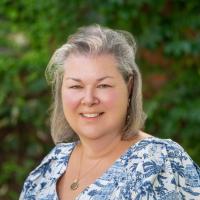
Katya Cerar, M.S.W., Ph.D. '13, LICSW
Senior Director of Practicum Learning
Katya Cerar is the senior director of Practicum Education at Smith College School for Social Work and has taught and supervised students from various New…
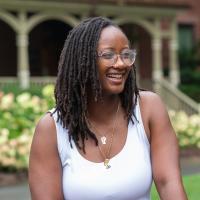
Janae Peters, M.S.W. '15, LMSW
Director of Community Engagement and Student Support | Practicum Seminar Instructor
An alum of the Smith School for Social Work, Janae Peters graduated from the M.S.W. program in 2015. Her professional and personal focus has been on…
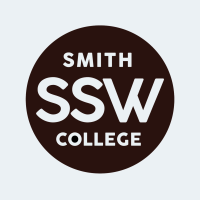
Rose Marie Äikäs, M.S.W., M.A., Ph.D.
Adjunct Professor
Rose Marie Äikäs is a professor at CUNY-Queensborough Community College, where she teaches courses in criminal justice and social work. Her current research…



Catherine Balletto, M.S.W., Ph.D. '21
Adjunct Assistant Professor
Catherine Balletto, M.S.W., Ph.D., earned her B.F.A. from the School of Visual Arts in New York City. Starting off as an art therapist, she established a…

Chelsey Branham, M.A.
Adjunct Assistant Professor
Chelsey Branham (she/they, Chickasaw/Cherokee/Pawnee) is the owner and CEO of One Whole Village Consulting, LLC. She specializes in transformational equity in…

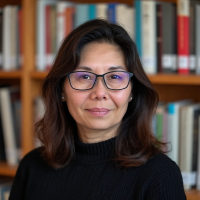
Maria del Pilar Bratko, MFT, Ph.D.
Adjunct Assistant Professor
Maria Pilar Bratko has been in practice for 18 years serving a wide range of clients. She has held a number of administrative roles at Bay Area training clinics…



Natasha Campbell, BSW, M.S.W., LICSW
Adjunct Associate Professor
For over 17 years Natasha Campbell has supported a space for individuals to grow through the challenges of life, face their traumas, rebuild families and…


Rebecca Castro, M.S.W., LICSW
Adjunct Associate Professor | Practicum Faculty Adviser | Practicum Prep Instructor | Practicum Seminar Instructor

Davis Chandler, M.S.W. '11, LICSW
Adjunct Assistant Professor
Davis Chandler (they/them) was clinically trained at Smith SSW and graduated in 2011. They have worked in a community mental health setting with children…

Alberto Cifuentes Jr., M.S.W., Doctoral Candidate
Adjunct Assistant Professor
Alberto Cifuentes Jr., M.S.W., is an experienced community organizer and policy advocate. He has been a community practitioner for over 20 years and has worked…

Mamta Dadlani, M.S., Ph.D.
Adjunct Professor
Mamta Dadlani, Ph.D. is a licensed clinical psychologist who engages in clinical practice, consultation, training and scholarship through a lens of critical…
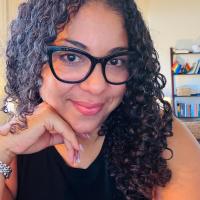
Jamie Daniels, M.S.W. ’14, Ph.D. ’23, LICSW
Adjunct Associate Professor
Jamie Danielle Daniels, Ph.D., LICSW, is an assistant professor of Social Work and Equitable Community Practice at the University of Saint Joseph in West…


Sarai Engel, M.S.W. '06, LCSW, ATR
Adjunct Professor
With over 25 years of experience working with children and adolescents in schools, residential treatment centers, and community mental health settings, Sarai…

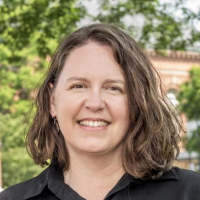
Mareike Every-Giroux, M.S.W. '09, LICSW, C.H.C.
Adjunct Associate Professor
Mareike Every-Giroux is the director of substance use programs at River Valley Counseling Center and Co-Chair of the Council on Diversity, Equity, Belonging &…

Maria del Mar Farina de Parada, MBA, M.S.W. '98, Ph.D. '15
Adjunct Professor
Maria del Mar Farina earned both her M.S.W. and her doctorate at the Smith College School for Social Work. She is currently an assistant professor in the M.S.W…

Paul Gitterman, M.S.W., M.Sc., LICSW, CGP
Adjunct Professor
Paul Gitterman has been associated with the Smith College School for Social Work since the early 1990s, first as an M.S.W. student, and then as a clinical…




Andrew P. Hoang, M.S.W., Ph.D.
Adjunct Assistant Professor
Andrew Hoang is senior lecturer and programme director of the Bachelor of Arts and Sciences Programme at the University of Hong Kong. He is also senior tutor…

Andres Hoyos, M.S., M.S.W., LCSW
Adjunct Assistant Professor | Practicum Faculty Adviser | Practicum Seminar Instructor
Andrés Hoyos brings over two decades of clinical and administrative experience in the fields of mental health and social services working in private, public and…
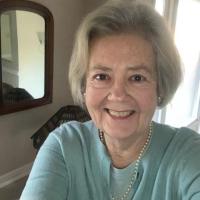
Debra Hull, M.A., Ph.D.
Adjunct Professor
Debra Hull began teaching research methods at Smith College SSW in the summer of 2013, and has been doing so ever since. During the school year she is professor…
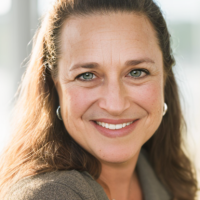
Elise Jacobson, M.S.W., LICSW
Adjunct Assistant Professor
Elise Jacobson is a child and family social worker of 33 years and has a thriving private practice. She is a graduate of Brandeis and Yeshiva’s Wurzweiler…

Leah Jikurashvili, B.S.W., M.S.W.
Adjunct Assistant Professor
Leah Jikurashvili is a forensic social worker in the criminal defense practice in New York. Prior to becoming a forensic social worker, she worked in the field…
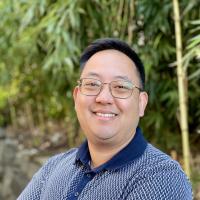
Alex Kim, M.S.W. '12
Adjunct Associate Professor
Alex Kim (he/him) is a clinical social worker currently in private practice in Northampton, Massachusetts. Previously he has worked in public schools, college…

Luke “tt” King, M.S.W., LICSW
Adjunct Assistant Professor
Luke King (he/they) is a private practice mental health clinician specializing in somatic trauma healing for transgender adults. King utilizes an eclectic…


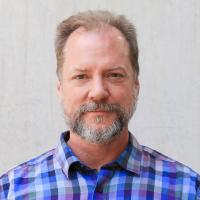
Kurt Lebeck, M.S.W. '20
Adjunct Assistant Professor
Kurt D. Lebeck, M.S.W., is a behavioral health and recovery science researcher emphasizing program development for substance use and co-occurring disorders. His…

Renee Lindquist
Adjunct Associate Professor | Practicum Faculty Adviser | Practicum Prep Instructor | Practicum Seminar Instructor

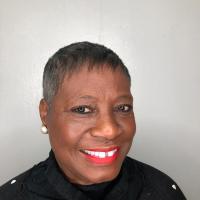
Sharron Madden, LCSW-R
Adjunct Associate Professor
Sharron Madden has dedicated her career to serving children and families who are victims of family separation, intimate partner violence and hospitalizations…

Elise Manning, M.S.W. '12, LICSW
Adjunct Assistant Professor
Elise Manning's clinical interests include working with psychosis and schizophrenia spectrum symptomatology, attending to the nervous system, mind/body…
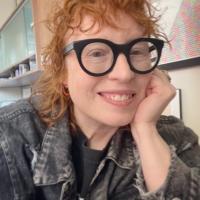
Michelle Marchese, M.S.W. '11, Ph.D. candidate
Adjunct Assistant Professor
Michelle M. Marchese is a licensed independent clinical social worker and certified trauma therapist. They are a graduate of Smith’s M.S.W. program and a…

Jackson Montañez Matos, M.A.T. '03, Ed.D.
Adjunct Assistant Professor
Jackson Matos holds a master of arts in teaching from Smith College, MA State Licensure as a 5-12 ELA teacher, and a doctorate in education from the University…

Tamarah Moss, M.S.W., M.P.H., Ph.D.
Adjunct Assistant Professor
Tamarah Moss is an associate professor at the Graduate School of Social Work and Social Research at Bryn Mawr College. Her community-centered scholarship…

J.J. Mull, M.S.W. ’21, LICSW
Adjunct Assistant Professor
J.J. Mull is a poet, writer, and clinical social worker based in Brooklyn, NY. He is a graduate of Smith College School for Social Work, as well as the Program…
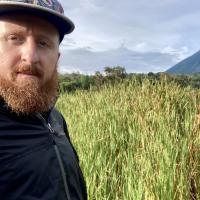
Este Orantes Migoya, M.A., Ph.D. Candidate
Adjunct Assistant Professor
Este Orantes Migoya (they/them) comes from a lineage of strong and resilient women and is the youngest of three siblings. Born in Ixim Ulew (Guatemala), they…

Malcolm Pradia, M.S.W. '13, LICSW
Adjunct Associate Professor
Malcolm Pradia is a clinical social worker at the Center for Counseling and Psychological Health at his alma mater, the University of Massachusetts Amherst…

Beth Prullage, M.S.W. '01, LICSW
Adjunct Professor | Practicum Faculty Adviser | Practicum Seminar Instructor
Beth Prullage works at the University of Massachusetts Amherst at the Center for Counseling and Psychological Health as a psychiatric social worker and co…
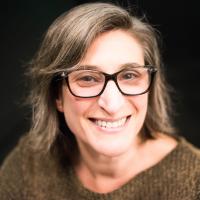
Alexandra Klein Rafaeli, M.A., M.S., Psy.D.
Adjunct Assistant Professor
Alexandra Klein Rafaeli has been teaching at SSW since 2019. She developed the course Interpersonal Psychotherapy (IPT): Theoretical, Cultural, and Experiential…


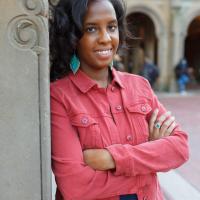
Clarice Robinson, M.S.W., Ph.D. Candidate
Adjunct Assistant Professor
Clarice J. Robinson (she/her) is a Ph.D. student at the University of Chicago School of Social Work. She studies the body-mind impacts of incarceration and yoga…

Monifa Robinson, M.S.W. ’97, M.P.A., LCSW
Adjunct Professor
Throughout her professional career, Monifa Robinson has served in a variety of clinical settings, including but not limited to working with military personnel…
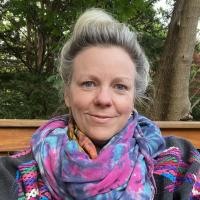
Shannon L. Sennott, M.S.W. '08, LICSW, CST
Adjunct Associate Professor
Shannon Sennott, a sex educator, gender justice activist, and LGBTQAI+ family therapist, earned her M.S.W. at the Smith College School for Social Work in 2008…

Shalini Sharma, M.S.W., LCSW
Adjunct Assistant Professor
Shalini Sharma has been working in Brooklyn, NY as a social worker since 2000 with families and children. Sharma believes in the movement to uplift underserved…
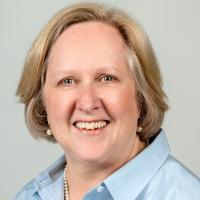
Emily Sherwood, B.A., M.P.A.
Adjunct Associate Professor
Emily Sherwood dedicated her career to working for social change, from early days as a community organizer to many years working on health and mental health…
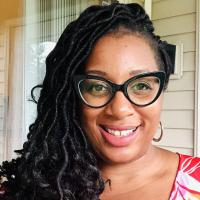
LaTasha Smith, Ph.D., LCSW, CGP
Adjunct Associate Professor
LaTasha Smith is a professor in the M.S.W. program at Fairfield University where she teaches social justice, assessment and fieldwork. She has also taught…

Rhoda Smith, M.S.W.
Adjunct Assistant Professor
Rhoda Smith is a doctoral candidate in social policy and social research at Loma Linda University as well as the Smith College School for Social Work’s 2016…

Ruth E. Spencer, J.D., M.S.S.A., LISW
Adjunct Professor
Ruth Spencer is an adjunct professor with a long history with SSW. She teaches courses that address the intersection of law and social work practice. She…
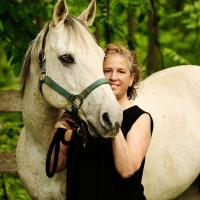
Dana Spett, M.S.W., D.S.W.
Adjunct Assistant Professor
Dana Spett, D.S.W., is the founder and executive director of Pony Power Therapies, a nonprofit organization dedicated to connecting individuals with…
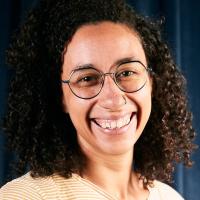
Brianna Suslovic, M.S.W. '18, LSW (Illinois)
Adjunct Professor
Brianna Suslovic is a Ph.D. candidate in social work at the University of Chicago's Crown Family School. She is a 2018 graduate of Smith's M.S.W. program and…

Jennifer Swanberg, MMHS, Ph.D., OTR/L
Adjunct Professor
Jennifer Swanberg is dedicated to advancing social change through education, research, and social innovation. Her contributions to science span the areas of…
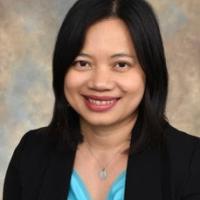
Loan Vo, Ph.D. '24
Adjunct Assistant Professor
Phuongloan (Loan) Vo is a clinical social worker whose work include short term and in-depth long term psychosocial therapy for individuals who struggle with…
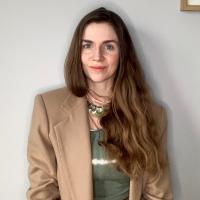
Astrid Watkins, M.S.W.
Adjunct Assistant Professor
Astrid Watkins is a Ph.D. student in social work and social welfare at the University of Chicago. Her interests include historical and contemporary abolitionist…

Chris Watkins, M.S.W.
Adjunct Assistant Professor | Practicum Faculty Adviser | Practicum Seminar Instructor

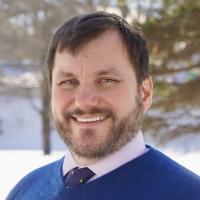
Kurt White, M.S.W. '03, LICSW, LADC, CGP, AGPA-F
Adjunct Professor
Kurt L. White is the VP of Community Partnerships, Communication, and Development at the Brattleboro Retreat, a private non-profit psychiatric hospital founded…
